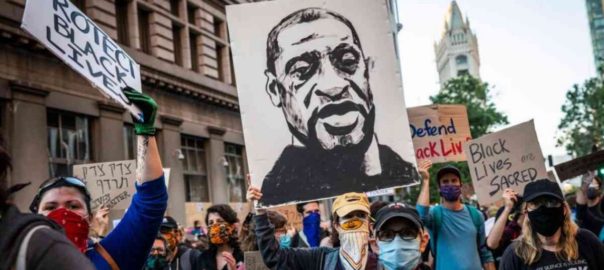In the wake of the events following the murder of George Floyd, Made to Flourish issues the following statement. I think it is a clear, fair, and wise expression and I hope you will pass it on.
We join a chorus of voices in the unequivocal condemnation of the brutal killing of George Floyd, which followed the recent tragic killings of Ahmaud Arbery and Breonna Taylor. Of course, these are only the most recent examples among the long scourge of institutional and systemic racism and brutality against black and brown brothers and sisters who bear God’s image. We lament in the fullest biblical sense the injustice that has been perpetrated towards people of color which events like the killing of George Floyd continue to expose.
Above all, our righteous God is angered by injustice. And because the church is the visible representation of his voice and work in our world—the body of Christ—the church has a responsibility to offer prophetic critique and model a new way forward. Many churches have understood this calling, especially among our African American brothers and sisters. For many others, there is much work that needs to be done, undergirded by humble listening and sincere repentance. Corporately, we confess not only our sins of commission, in ways that the church has been complicit in racism, but also our sins of omission, as we have not loved justice and sought change that is consistent with God’s character and will.
As an organization, we exist to empower pastors and their churches to integrate faith, work, and economic wisdom, for the flourishing of their communities. Safe to say, our communities are not flourishing, and they haven’t been even long before the unrest of these past few weeks. Why? In part, we believe that the church has not been all that it is called to be in society. We say this not merely as a critique, but in humility, realizing that we have not embraced the totality of God’s mission in our world, the reconciliation of all things to himself, which entails reconciliation to one another.
While there are many ways to frame our current moment, one could say that our current crisis is a crisis of work, vocation, and economics. How will the people of God respond and live in their work environments? Will city government workers seek to build bridges in their communities? Will police chiefs and departments continue to inspect every system and incentive that leads to injustice? Will workers in unions not only protect their own but also embrace accountability? Will pastors and churches seek unity and partnerships, first among themselves, and also among the many non-profit, governmental, and for-profit companies engaging in redemptive work in our cities? Will each individual recognize and act on their responsibility to seek the common good of all in their community?
And of course, economics. Much has been written on the racial wealth disparities in our country, and how they undergird many of the challenges we face in our communities. The causes are myriad, some as old as the founding of our country. But how might the church embrace and call for expanding economic opportunity, rooting out bias in hiring and promoting, support for those looking for jobs, expanding access to social and financial capital, and calling for equal pay for equal work? In the model of sphere sovereignty, the institutional church is not always or even usually the final actor. But the scattered church, followers of Jesus deployed in every sphere of society, bring the aroma of Christ wherever they work.
We long for churches, alongside so many other important initiatives, to embrace the integration of faith, with work, and economic wisdom, for the flourishing of their communities. And we need to hear your stories of creative response and engagement. God’s Spirit is not done with his church. Through repentance and in humility, the church plays a central role in God’s redemptive plan, and the gates of hell will not prevail against it.
We end by praying for justice in our communities, that God’s justice would be made known in our cities where there has been rampant injustice. We pray for peace, not merely the absence of conflict, but the holistic flourishing of our communities under the reign of God. We pray for conviction in the face of our apathy and the seeming entropy of our concern. And we pray for hope, among what seems like a hopeless situation. Our God is more than able.
“And now may the God of hope fill you with all joy and peace as you trust in him, so that you may overflow with hope by the power of the Holy Spirit.” Romans 15:13





